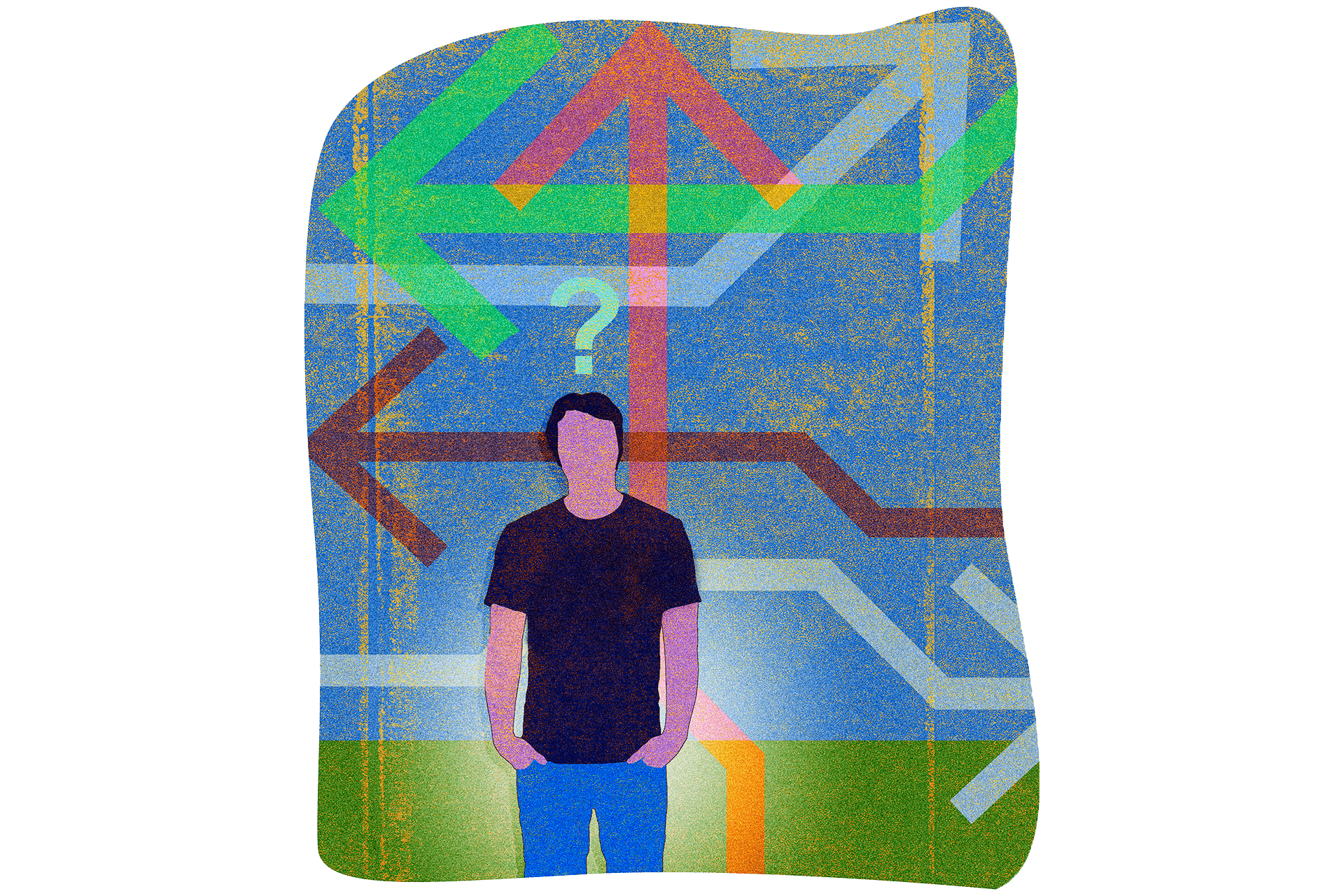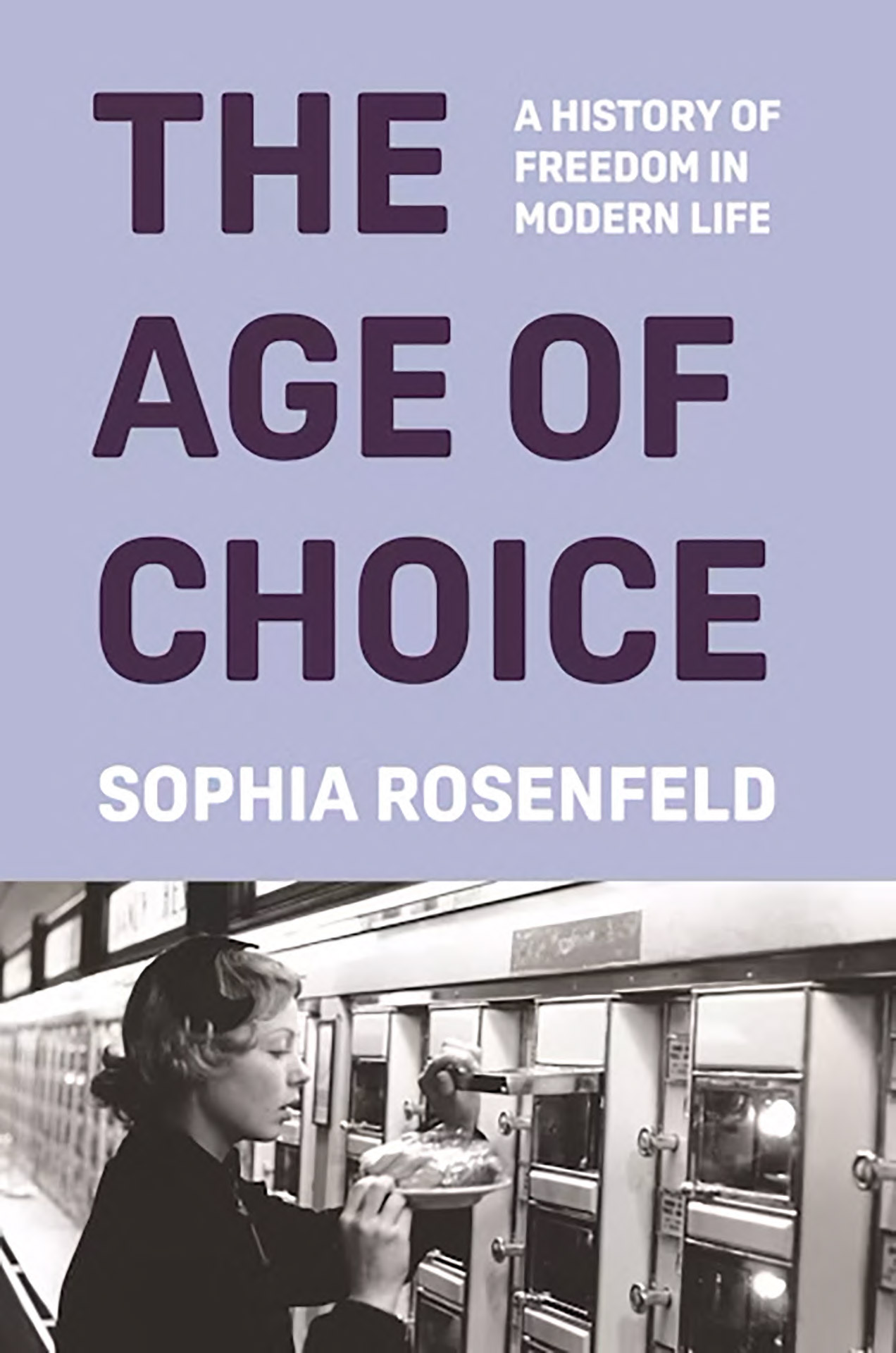
Illustration by Roy Scott/Ikon Images
Choice is a good thing, right?
Historian explores how having options became synonymous with freedom — and why it doesn’t always feel that way
It often feels that we were put on earth to choose. Paper or plastic? Coke or Pepsi? “Have it your way,” Burger King beckons. In controversial policy debates, Democrats and Republicans both use the language of choice to argue for their sides — pro-choice, school choice. Choice is a slam dunk, inseparable from contemporary notions of freedom.
It’s this sort of ubiquitous idea that most attracts Sophia Rosenfeld, Ph.D. ’96, professor of history at the University of Pennsylvania. After writing books on the history of common sense and truth, Rosenfeld tried choice. “It struck me as something particularly important that we rarely discussed,” she said. “Yet it was the unifying point, in many ways, for the way capitalistic culture and democratic culture intersect.”

In “The Age of Choice,” Rosenfeld traces choice’s meandering path to prominence and acceptance. She emphasizes that boundless choice wasn’t always accepted as the natural order of things — and wonders why, if it is supposed to be so freeing, it can often feel so burdensome.
The story of Adam and Eve, for instance, is not a testament to the powerful, freeing nature of choosing. Similarly, Rosenfeld points out that the allegory of Achilles’ choice between a long life or a heroic death is a scenario in which “decision making boiled down to two, unequal options.”
She references novels by Sylvia Plath, Margaret Wilkerson Sexton, and Frances Burney to trace the growing association between “choice-making and the construction of an autonomous, free self.”
In Rosenfeld’s view, consumerism ushered in centuries in which choice became increasingly important to social, economic, and political life. The first chapter delves into the origins of “shopping,” a once-novel experience invented by 18th-century British auctioneers.
The most prominent of the auctioneers, a Mr. Cock, pioneered a system of selling non-essential goods that turned the process of getting rid of inventory into a social event where people could peruse “choice” goods and flaunt their own powers of discernment. Instead of customers entering a market with a certain need, Mr. Cock encouraged them to view “shopping” as its own activity.
The practice spread, Rosenfeld writes: “[C]ustomers were repeatedly told by the mid-eighteenth century that they would confront situations in which plentiful ‘choices’ or ‘a great Choice’ or ‘the greatest of choice’ would be available, but also required of them.”
The centrality of choice moved from consumer life to social and political life, and often in ways that Rosenfeld acknowledges are positive.
Political movements for women’s suffrage, Civil Rights, and direct representation partially result from a public used to an expanded vision of personal choice. In various chapters, Rosenfeld traces how these changing norms influenced the freedom to choose religion, a partner, and elected officials in increasingly personal ways.
These explorations reveal unexpected origins for modern political and social practices.
Rosenfeld argues that the default way to vote in the U.S. — assembling in a public place only to vote in a private booth — results from an evolving view of personal choice. Whereas many American and English men once viewed voting individually and by personal whim as unbecoming, the growing primacy of individual choice helped lead voting away from public, often unanimous voting and toward the private ballot.
Throughout “The Age of Choice,” Rosenfeld challenges the idea that increasing the number of choices was always seen as the way to give people more freedom.
By narrating how the perception of choosing changed, she also reveals how, even in a broadly choice-happy society, there are still frameworks and historical precedents that shape the decisions we make. Though Americans take pride in the power to choose, few question laws against, say, choosing to give up a kidney for profit.
Similarly, Rosenfeld argues that more choice does not necessarily mean more freedom. Choosing one tube of toothpaste over several others might be a mild amusement, but having unregulated, ineffective toothpaste options would make that choice frustrating.
Sometimes, Rosenfeld believes, American emphasis on choice makes it hard to imagine political action that requires not a personal decision, but joint action. Instead of deciding between many healthcare plans with hard-to-predict contingencies, she said, “I think many of us would feel better off with one good plan.” Reaching that point would require more than just picking.
Rosenfeld is less concerned with the pitfalls of choice, though, and more interested in how it’s taken for granted. Choice has already won. But when we say we want choice, what do we really want?




